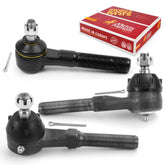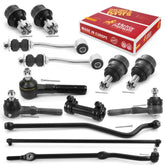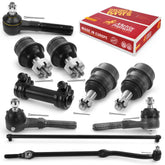Preparing Your EV for Winter: Tips for Safe and Efficient Driving in Cold Weather
Winter weather can have a variety of effects on electric vehicles (EVs). Cold temperatures, snow, and ice can all impact the performance and reliability of EVs and may require some special considerations for drivers.
Here are some considerations to keep in mind:
- Cold temperatures can affect the range of an EV. The battery may not perform as well in cold weather, which can reduce the range of the vehicle. It's a good idea to keep your EV charged and plan your trips accordingly, especially if you'll be driving in cold weather.
- Winter weather can also affect the charging of an EV. The charging system may not perform as well in cold temperatures, which can lead to longer charging times. It's a good idea to keep your EV plugged in overnight to ensure it's fully charged and ready to go in the morning.
- It may take longer to charge an EV in cold weather, as the battery may not accept a charge as efficiently. Consider using a Level 2 charger, which is faster than a Level 1 charger, to help reduce charging time.
- Cold weather can also affect the performance of the brakes on an EV. The brake fluid can thicken in cold temperatures, which can make the brakes feel less responsive. It's a good idea to have your brakes checked by a mechanic before the winter weather hits to ensure they are in good working order.
- Make sure your tires are properly inflated and have sufficient tread to help provide good traction on slippery roads. You may also want to consider using winter tires, which are designed to perform better in cold and snowy conditions.
To help mitigate the effects of winter weather on an EV, it’s also a good idea to use a battery warmer or other temperature-regulating device to help keep the battery at optimal temperatures.
Cod temperatures can cause the battery of an EV to lose some of its capacity, which can reduce the distance that the vehicle can travel on a single charge. Snow and ice can also add extra weight and resistance to the vehicle, which can further reduce range and performance.
In addition to these measures, it’s also a good idea to plan and allow extra time for charging during the winter months. This can help ensure that the vehicle has sufficient range to get where you need to go, even in cold and snowy conditions.
By taking extra precautions, you can ensure that your EV performs well in winter weather. It's also important to remember that winter weather can affect the overall safety of driving an EV. Cold temperatures can make roads slippery and visibility can be reduced, so it's important to take extra precautions when driving in winter weather. Slow down and leave extra space between you and other vehicles, and be sure to check your vehicle before hitting the road. Make sure your tires have sufficient tread, your windshield wipers are in good working order, and you have a full tank of gas. Know how to handle a skid and use lower gears when driving uphill to improve traction.
Overall, winter weather can bring about some challenges for EVs, but with a little extra preparation, you can ensure your vehicle is running smoothly and safely throughout the season. By following the tips outlined above, you can minimize the impact of cold temperatures on your EV and stay safe on the roads this winter!









